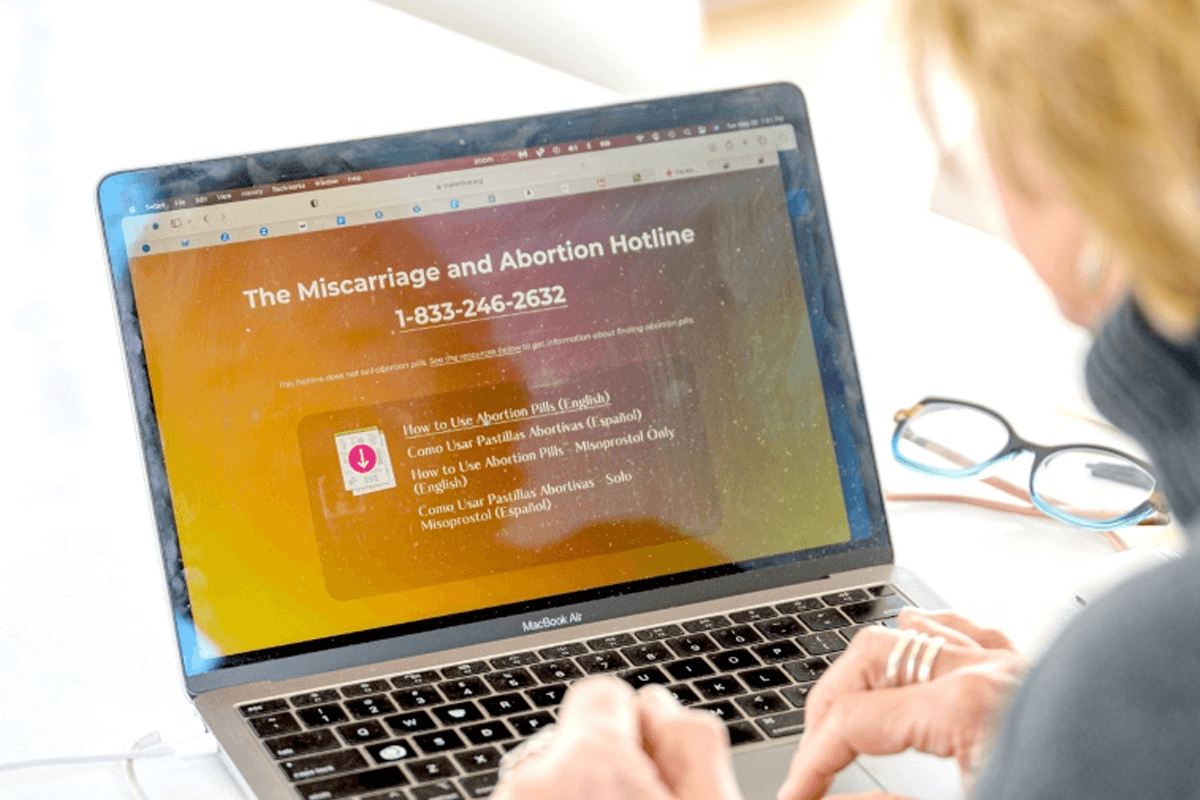
The phone has been ringing non-stop for a year. A New York doctor repeats her advice on a loop: “Make sure you’re drinking plenty of fluids;” “Take some ibuprofen;” “Everything’s fine, you can relax”.
The Miscarriage and Abortion Hotline is currently staffed by around 70 health care professionals on a voluntary rotational basis, providing advice and fielding questions from US women seeking to end their pregnancies. Their support is especially sought by those who must have their abortion alone at home, because the procedure is now illegal in their states.
Linda Prine and a colleague set up the helpline in 2019, as state-level abortion restrictions grew under former president Trump. They started out with 12 volunteers.
By far the most common reason people call the hotline is to ask where to find abortion pills. The hotline does not provide them directly but tells callers where to find them online, including from abroad. Many patients call the hotline after taking the pills, to make sure the abortion actually worked. Pregnancy tests can remain positive for up to several weeks after an abortion with pills, sometimes causing confusion. Sometimes, there is distress due to bleeding, which may last for a few weeks, and can be normal.
“Most of the time, we’re not really giving medical advice, we’re giving reassurance. “The medical part is very safe. The fear and anxiety are hard.” Many women who call have not spoken to anybody else for fear of being reported.
The telephone line is open 18 hours a day, every day. Most of the volunteers are general practitioners, and the patients remain anonymous. The biggest change Prine has seen in the past year is how far along women’s pregnancies have become at the point when they take the pills, especially if the pills take several weeks to arrive when shipped from abroad. In the hotline’s first three years, they had only one or two calls from someone using pills at 18 weeks. Now they sometimes get a call like that once or twice a day. For second trimester abortions, patients can be “in a total state of panic, because they’ve just passed a recognisable fetus and the umbilical cord is still there”. Most of the time, they don’t require medical attention.
Some are just teenagers. There was one woman who said, ‘I’m 39 years old, and I’ve never done anything illegal in my life, but I couldn’t have another baby.” These stories, and her anger at what is happening, continue to motivate Prine to action.
SOURCE: Barron’s, by Diane Desobeau with Lucie Aubourg/Agence France Presse, 18 June 2023 + PHOTO
+++
It’s time to call abortion bans what they are — torture and cruelty
The US must learn from other countries that denial of abortion is considered intentional, state-inflicted torture and cruel, inhuman, or degrading treatment, that is, a violation of women’s human rights.
On 24 August 2022, MH sought an abortion after receiving news that her pregnancy was endangering her life and its continuation would likely result in uterine rupture and organ damage. Unfortunately for her, 24 August was also the day that Tennessee’s near-total ban on abortion went into effect. Denied care in her own state and unable to travel to one where she could get the care she needed, Hollis was forced to endure a dangerous pregnancy and birth. She suffered severe haemorrhaging and lost her uterus.
There are many terms to describe her experience of being denied an abortion in Tennessee—harrowing, agonising, unconscionable—but these authors say we should also call it what it is: torture and cruelty.
SOURCE: The Nation, by Payal Shah, Akila Radhakrishnan, 9 June 2023



